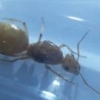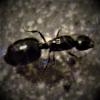Every time I try and breed crickets they always die off for some unknown reason, sometimes I see mold but I try to get it out there as quick as possible. I feed them the stuff you can buy from the store and they don't even eat it that much, I also have tried other foods too. Every time I try they seem healthy then about a week later they all just seem to die off.
- Formiculture.com
- Forums
- Gallery
- Members
- Member Map
- Chat

























